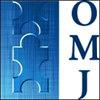Hindrance stressors, ego depletion and knowledge sharing
Q2 Social Sciences
引用次数: 0
Abstract
Purpose This study aims to use the ego depletion theory to examine the impact of hindrance stressors on knowledge sharing behaviors by investigating the mediating role of ego depletion and the moderating role of self-enhancing humor. Design/methodology/approach Data were obtained from a two-wave sample of 226 dyads, including employees in the manufacturing industry and their direct supervisors. The hypotheses were tested by hierarchical regression analyzes and Hayes’ PROCESS macro. Findings The results demonstrated that employees’ self-enhancing humor style could alleviate the impact of hindrance stressors on employees’ ego depletion state and buffer the negative indirect effect of hindrance stressors on employees’ knowledge-sharing behaviors. Research limitations/implications Although the authors collected mediator and dependent variables from different sources, this study used a cross-sectional research design, making it difficult to draw causal conclusions. Besides, hindrance stressors, ego depletion and self-enhancing humor style were all reported by employees. Originality/value Through the study, the authors highlight the important role of the self-control view in explaining proactive behavior in the workplace and a great awareness of the unforeseeable consequences of ego depletion for employees.阻碍压力源、自我耗竭与知识共享
目的运用自我耗竭理论,通过考察自我耗竭的中介作用和自我增强幽默的调节作用,探讨障碍应激源对知识共享行为的影响。设计/方法/方法数据来自226人的两波样本,包括制造业的员工和他们的直接主管。采用层次回归分析和Hayes’s PROCESS宏观对假设进行检验。研究结果表明,员工的自我提升型幽默风格可以缓解阻碍性压力源对员工自我耗竭状态的影响,缓冲阻碍性压力源对员工知识共享行为的负向间接影响。研究局限性/启示虽然作者收集了不同来源的中介变量和因变量,但本研究采用了横断面研究设计,因此难以得出因果结论。此外,阻碍性压力源、自我耗竭型和自我提升型幽默类型均为员工报告。原创性/价值通过这项研究,作者强调了自我控制观点在解释工作场所的主动行为和对员工自我耗尽的不可预见后果的高度认识方面的重要作用。
本文章由计算机程序翻译,如有差异,请以英文原文为准。
求助全文
约1分钟内获得全文
求助全文
来源期刊

Organization Management Journal
Social Sciences-Education
CiteScore
2.60
自引率
0.00%
发文量
13
审稿时长
8 weeks
期刊介绍:
Organization Management Journal is a blind peer-reviewed online publication sponsored by the Eastern Academy of Management. OMJ is designed as a forum for broad philosophical, social, and practical thought about management and organizing. We are interested in papers that address the interface between theoretical insight and practical application and enhance the teaching of management. OMJ publishes scholarly empirical and theoretical papers, review articles, essays and resources for management educators. Appropriate domains include: -Organizational behavior- Business strategy and policy- Organizational theory- Human resource management- Management education, particularly experiential education
 求助内容:
求助内容: 应助结果提醒方式:
应助结果提醒方式:


